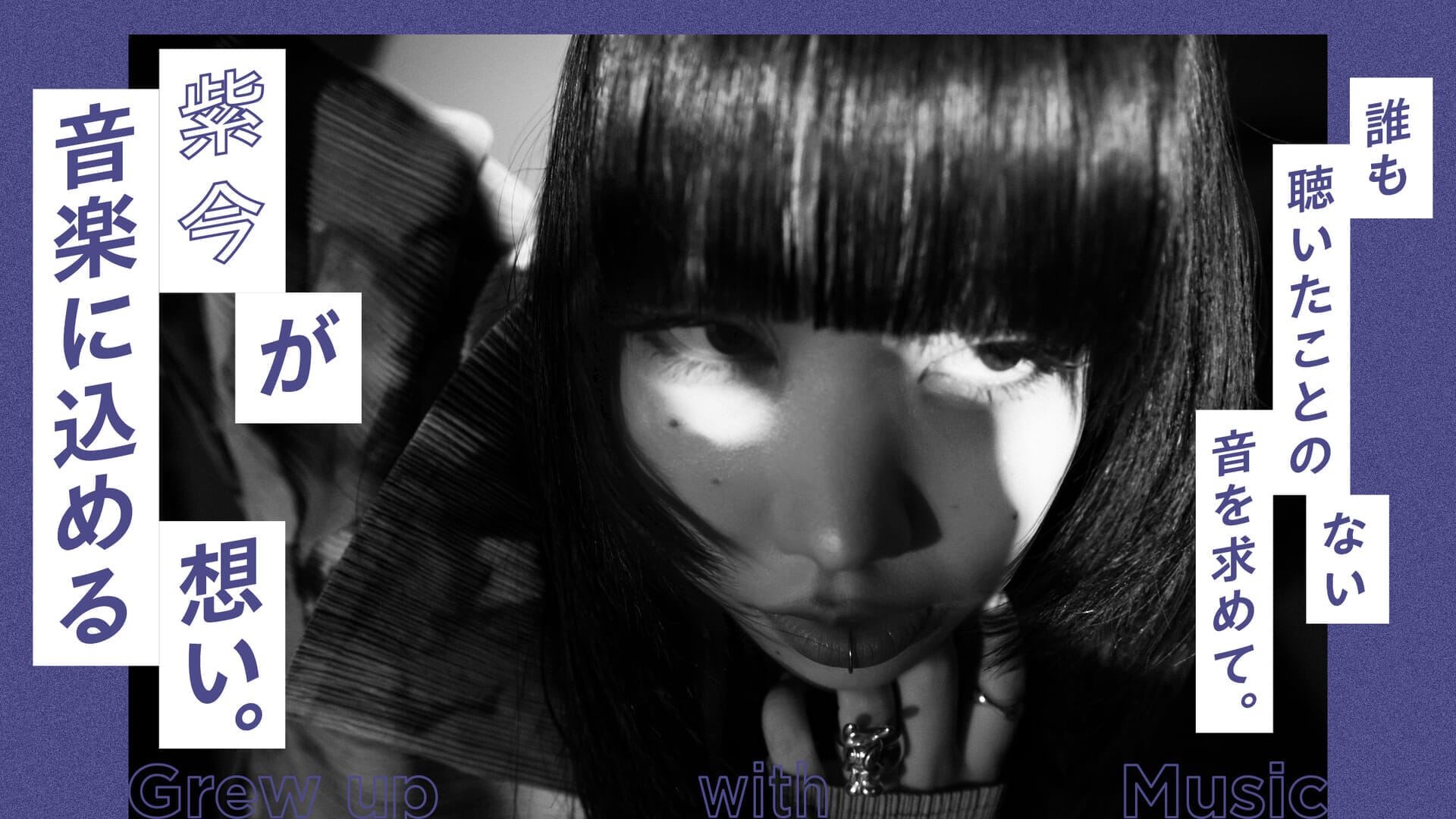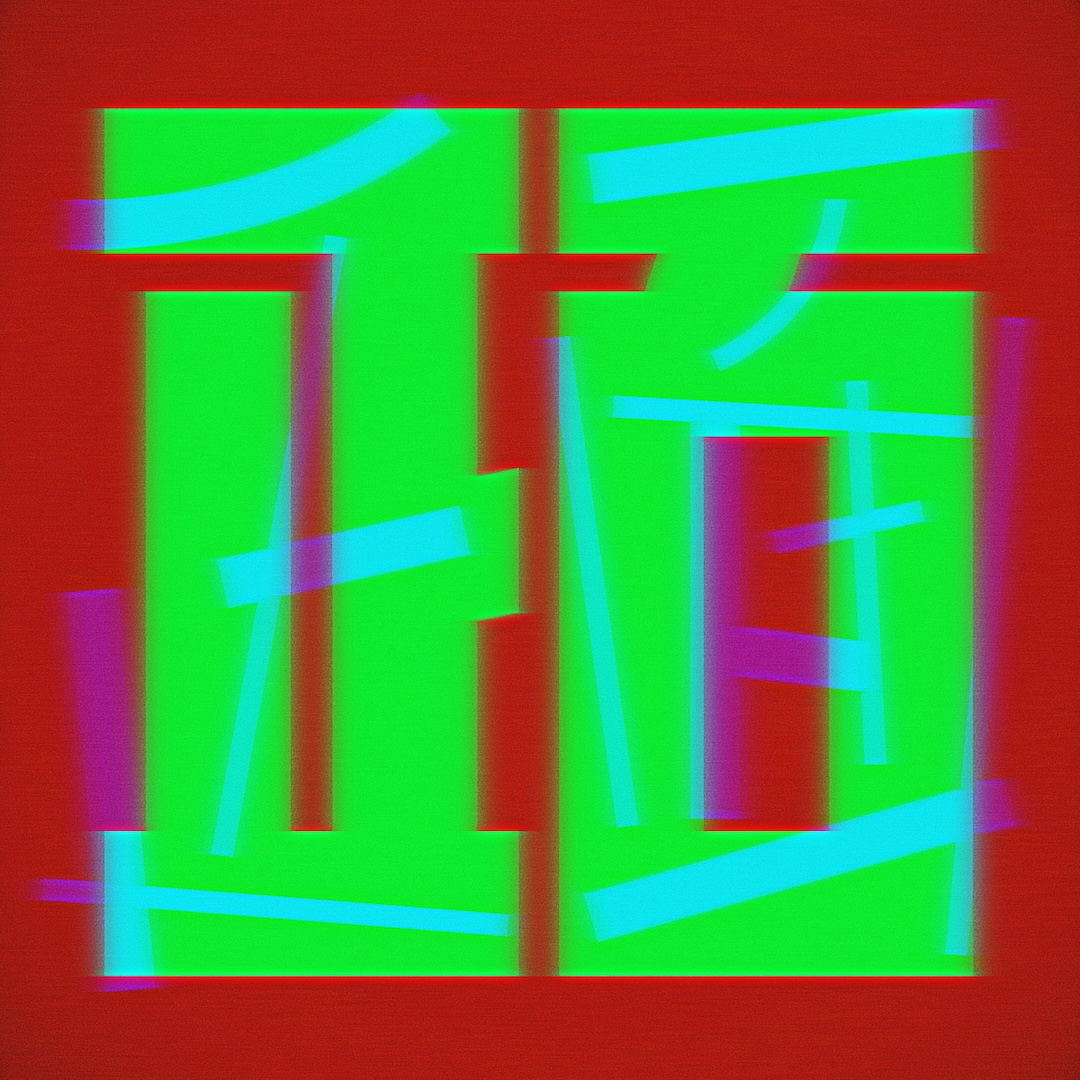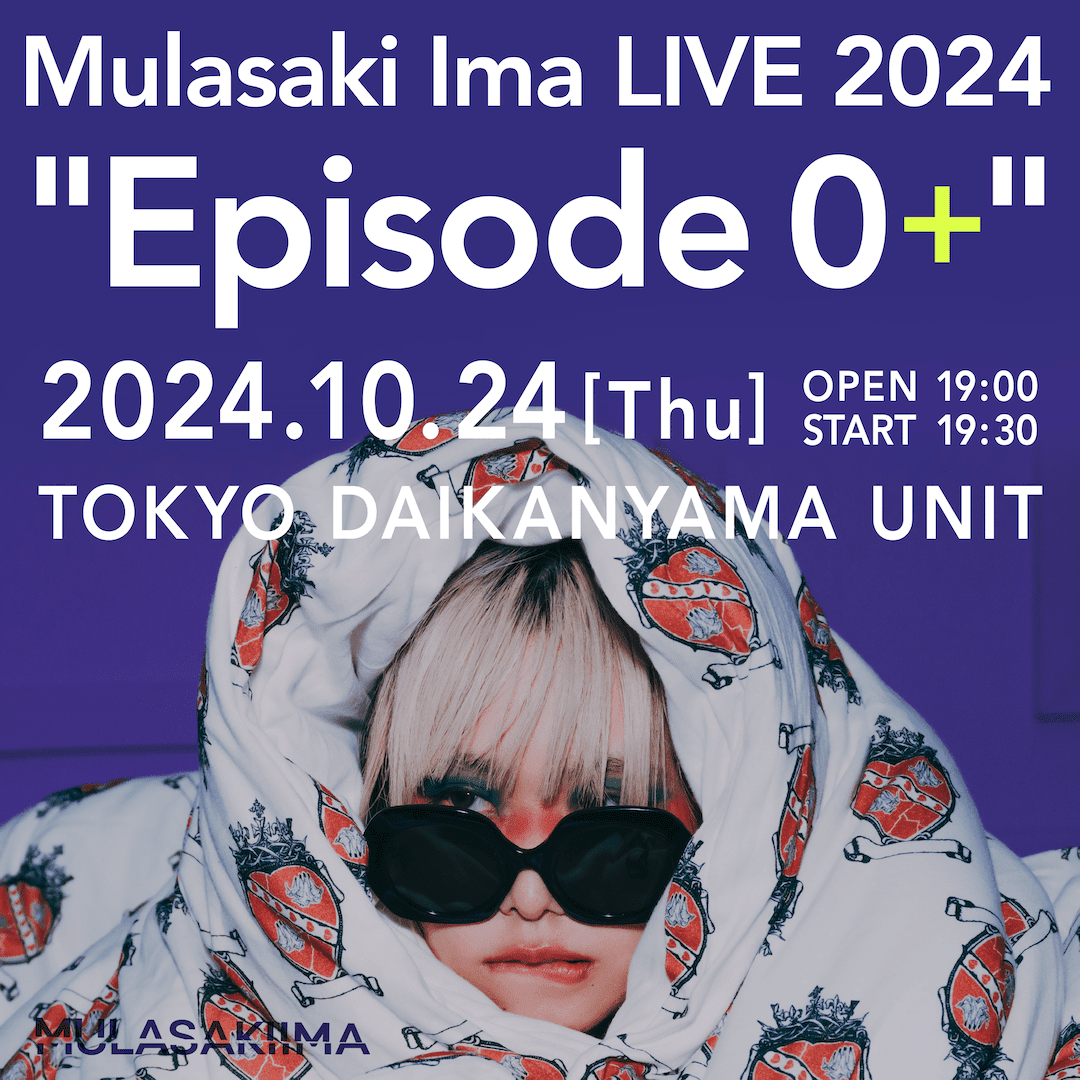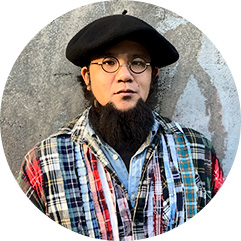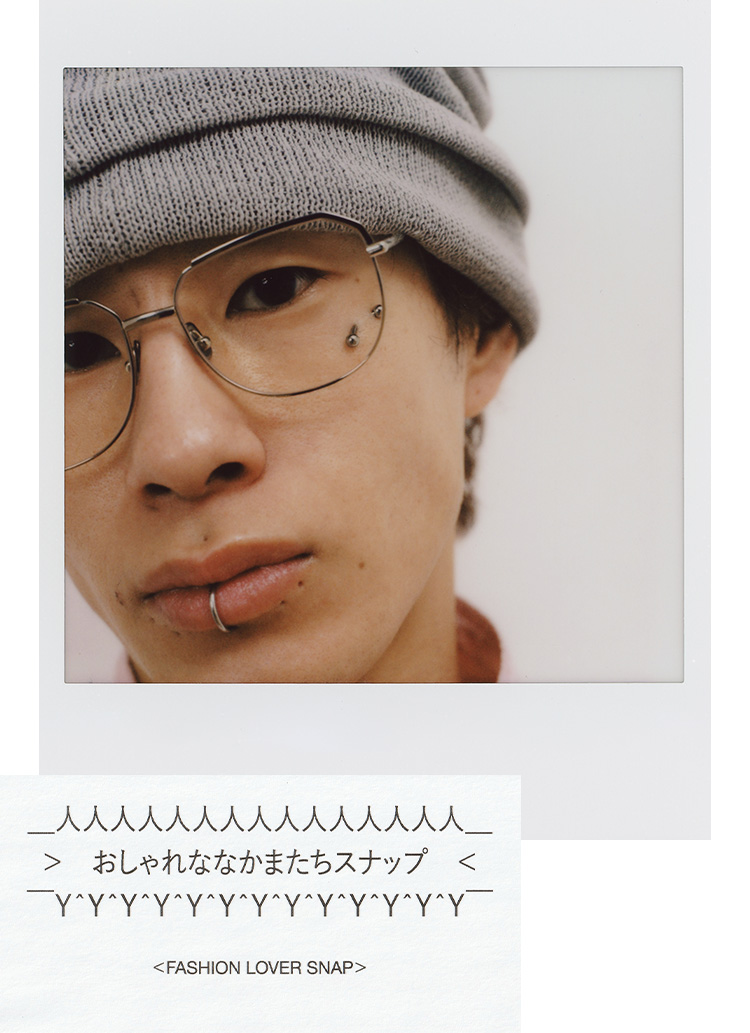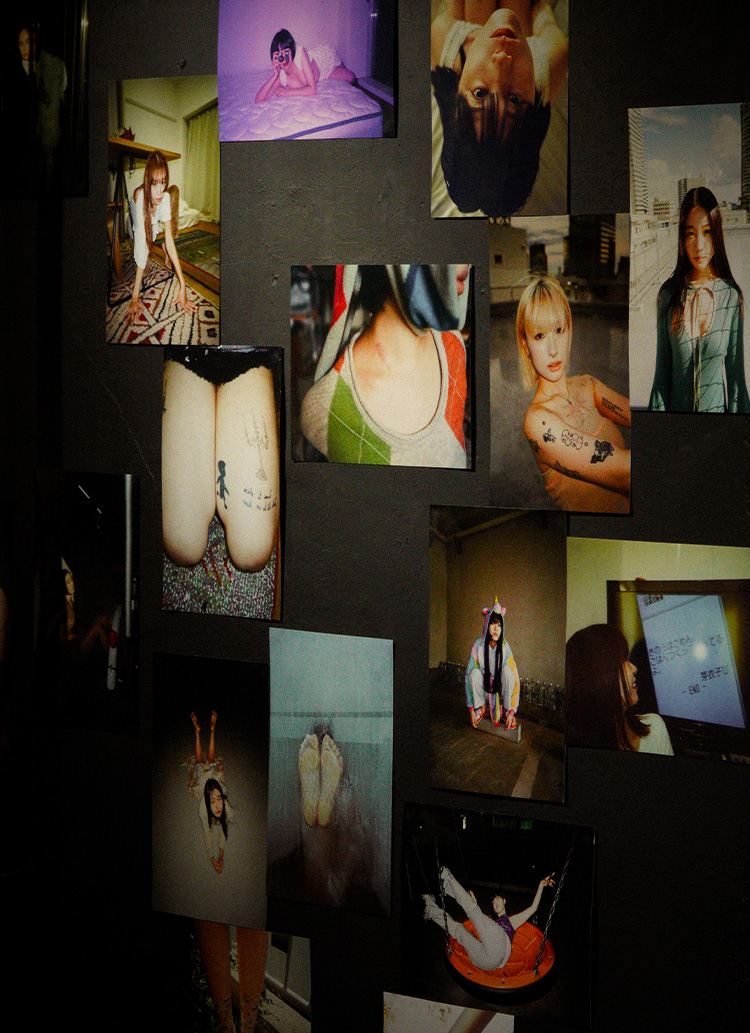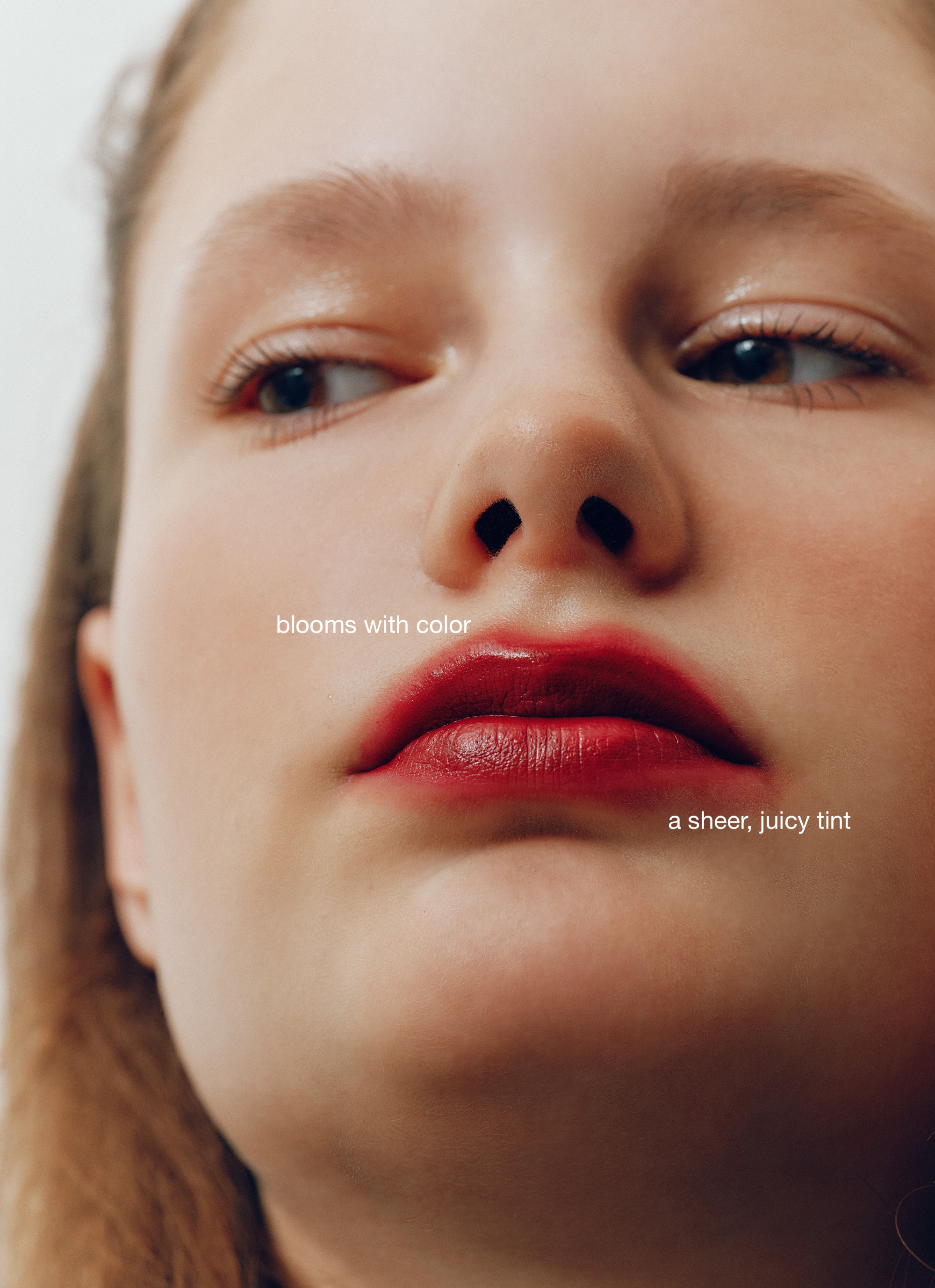PROFILE
In 2023, she began releasing her song "Golden Time," which became a hot topic on social networking sites. In December, "Not Queen" was selected for heavy rotation on FM802. In 2024, she released her first anime tie-up song, "Gakkyu Nisshi (Classroom Journal)," and her April release, "Majo no Onna A" has been viral not only in Japan but also in Asia.
Always have your own ego, but also be aware of the public gaze.

We are pleased to announce that we have been selected as one of Apple Music's "Up Next Japan" artists for the month of August. This is a project in which Apple Music staff spotlights fresh artists before their breakthrough. How did you feel when you were selected?
Purple Now: I was simply happy. Murasaki: I don't think the speed at which you start your activities as an artist and then get selected for the award is normal. You never know what is going to happen in this world. It was an event that made me realize that I am now standing shoulder to shoulder with the artists I used to look up to with admiration a few years ago.

Apple Music "Up Next JapanPurple: now
We would like to ask you about your past and future. First, let's talk about your roots. Both of your parents were musicians. What kind of people are they?
Purple Now: My father played the djembe, a percussion instrument that originated in Africa, and traveled around various countries as a street musician. My mother was a gospel singer and also played in a band because she loved African music. I was in that kind of environment from a very young age. I found myself singing gospel songs and dancing and singing African music with other adults.
Do you remember when you first became aware that it was music?
Purple Now: Such scenes were commonplace, so it was not until I was in elementary school that I realized that the music my parents were playing was something rare in Japan. At that time, vocaloid music was at its peak, and my friends influenced me to listen to it, and I realized that what I was used to was amazing music. I think African music and vocaloids are at opposite ends of the spectrum.
I think that African music is born in a primitive and physical way, whereas Vocaloids are digital.
Purple Now: Yes, I think so. I think that my exposure to ethnic and physical music at an important time in my childhood has led me to the wide range of musicality I have today.
I think you mean that music was something fun, like a toy.
Purple Now: I had a relative sense of pitch and liked to harmonize. That was influenced by gospel music. I also enjoyed playing with instruments, but playing with harmonies was my play.

When did you decide to become an artist?
Purple Now: I found myself thinking, "I'm going to be an artist" (laughs). When I was in elementary school, we had a recreational event where we showed off our skills. I sang in the center. From that time on, I was looking for a place where I could sing in front of many people. I was also learning to dance, and I just wanted to perform in front of people. That's how I knew I wanted to be an artist when I grew up.
I started to pursue it seriously when I started playing the guitar in junior high school. Not only could I sing well, but I couldn't write songs if I couldn't play an instrument, and I thought it was something I needed to do. I was torn between piano and guitar, but at the time there was a boom in acoustic guitar girls (laughs).
So I started a YouTube channel and started uploading videos of cover songs. Murasaki: That's where you started your current activities.
Did you always plan to do YouTube?
Purple Now: I had been thinking about doing it for a long time, but the idea of putting my own videos on the Internet was intimidating at first. It was hard to find the courage to do it, but when the video I made of the school festival in high school received 1 million views, I thought, "Not yet! I thought, "Not yet! I thought that now was my chance to get buzz and get noticed.
You started uploading videos of cover songs every week, didn't you?
Purple Now: I had my own quota. I would come home from school and shoot videos in my uniform and upload them. I knew that I would never become an artist if I just did covers, but I didn't have the ability to compose music at the time, so I just rode the wave and tried to grow my channel and increase my fan base. I wanted to increase the number of people who would listen to my songs in case I would drop an original song someday. I wanted to do everything I could.
There are Japanese and foreign artists who cover songs, and the genres are diverse, aren't they?
Purple Now: I chose songs that I liked as a prerequisite, but I also chose J-POP songs that I thought would get a lot of views. There are many videos that I have already deleted, but the ones that remain are songs that I really like.
Do you feel like you learn a lot about the chords and structure of a song by covering it?
Purple Now: Yes, I do. I don't speak English, but I would listen to and imitate the pronunciation, inflection, groove, and rhythm of foreign artists, and try to incorporate them into my own style. Looking back, I realize that this was very important.
J-pop artists have various styles of singing, depending on the time period. In the case of Japanese rock music, it is more effective to sing in a blunt style. In Western music, the singer sings beautifully and gracefully, but in Japanese rock music, the singer sings as if throwing out the end of a word. I dared to do that, and it led to my ability to express myself.

When did you develop such analytical skills?
Purple Now: I have always had that kind of personality. I uploaded videos to YouTube and repeated trial and error, thinking things like, "If I sing this song in this way, it will be popular and increase the number of views. I was thinking in my own way as I shot and uploaded the videos, and as I checked the reactions of the fans, I honed my analytical skills and objectivity. Always keep your ego in mind, but also be aware of the public's viewpoint.
I think you have wanted to be an artist since you were a little girl, and you were working toward that goal, but did you ever let the goal become a means to an end and lose the fun?
Purple Now: I am not good at studying. If it becomes too much like studying, I have a hard time continuing. However, I consider music, including songwriting and recording, to be fun. I enjoy reading what is going on in the world and analyzing how I am viewed. I look at what is going on in the world and reflect it in my music. By subtly including African music, which is my roots, in my music, I am able to reach people who are not familiar with such genres. It's as if they are hearing the music without even knowing it. I am very excited to think of such devices.
When you are in junior high school and high school, you are very impressionable and have many options for the future.
Purple Now: I also liked drawing pictures, so there were times when I thought about becoming an illustrator or a cartoonist. But in the end, that too has led me to where I am today. Of course I write the music, but I also draw and produce the artwork myself, which helps me to create a total world view.


